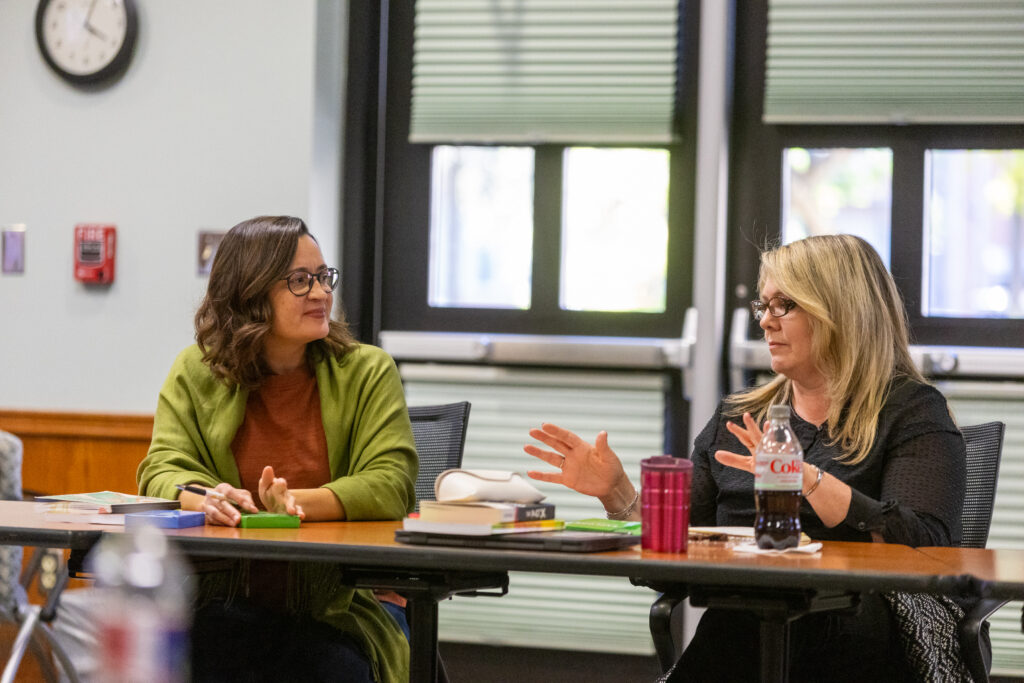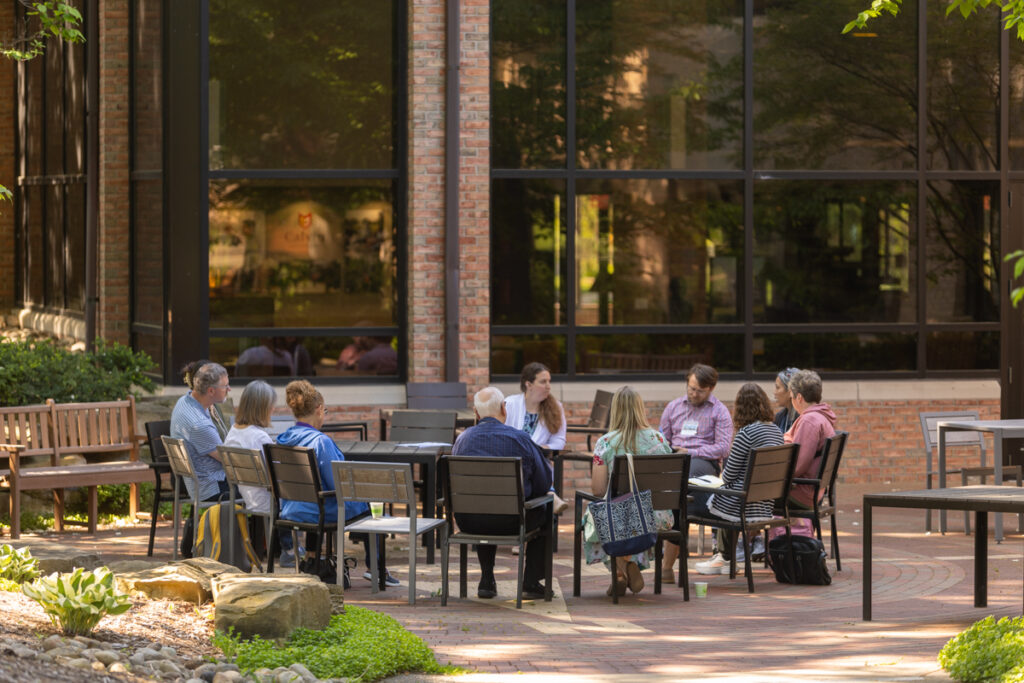Thank you for being willing to support NetVUE member institutions through our Vocation Workshop and Consultation Programs! These resources are meant to support your preparation for the visit and leadership on campus. You are not required to use any of the resources and are encouraged to bring to the campus things that are authentic to you and your experience with vocation. If you create something new (an activity, example, approach to discussing vocation, or new topic), please consider sharing it so it can become a resource for other consultants and workshop leaders. This is one way we can leverage the strength of our network to support vocational exploration across our campuses. If you have any questions, please contact Rachael Baker, NetVUE associate director, at rbaker@cic.edu, (616) 632-2190 (work), or (919) 323-2866 (cell phone).
Preparing for the Visit

Matching Process
We consider expertise for the particular question that interests the institution, proximity to the institution, and alignment with the faith tradition of the institution (if that is important to the institution) when matching institutions with a consultant or workshop leader. If you ever feel like you are not a good fit for a particular opportunity that is offered, don’t hesitate to tell us as this will not reduce the chance that you will be offered future consulting opportunities.
Getting to Know an Institution
Some things you might want to look at are the size of the institution, its mission statement, and its religious tradition. If you are doing a consultation, we will also give you more information about how long the institution has been involved with NetVUE and what their previous engagement with the network has looked like.
Booking Travel
You are responsible for arranging your own travel, which will be reimbursed after the visit (be sure to save all your receipts!). Follow these travel planning guidelines and don’t hesitate to ask Rachael (rbaker@cic.edu) if you have any questions about what to do.
Call with Institution (general advice)
You will want to have at least one call with the institution before your on-campus visit (likely more if you are doing a consultation). Here are some things you might want to cover during your first call:
Start by introducing yourself and what you do. This is a time to promote your strengths and experience, even if it feels awkward to you. The institution is welcoming you to campus as an expert and is excited to hear about the expertise you will bring.
Ask about the demographics of the campus, for example: how many faculty and staff do they have? What does the student body look like?
Ask about familiarity with the language of vocation on campus. Will the word “vocation” resonate with faculty, staff, and students or is there a better word to use? Are people familiar with vocation across campus or is vocational engagement happening in smaller pockets?
Discuss specifics for programming you will be facilitating. There are more ideas on what to ask on the consultations or vocation workshops pages.
Ask about logistics for the visit, including whether there is anything you should know about nearby hotels or airports and who the point person should be for you to contact in case anything comes up ahead of your visit.

After the Visit
You will receive information about writing a report (consultations only) and submitting your receipts for reimbursement after the visit. You will also get a link to complete a short survey about your visit to help us learn more about what is happening at the institution you visited. The institution will also receive a survey so that they can provide feedback about how the visit went. If you made connections at the institution and are interested in staying in conversation with them after the visit, you are welcome to do so.
Common Institutional Concerns and Requests
What data is there on the impact of vocation programming on campus?
When individuals ask this question, they are most often asking for help justifying paying attention to vocation. The most comprehensive study on vocation programming to date is published in The Purposeful Graduate. Included here is a handout summarizing the key findings with some talking points that you can use. You could also share the article by Tim Clydesdale, Holy Grit, as a summary of what is in the book. You may also want to consider sharing your personal experience with vocation programming on your campus and the impact it has had on your faculty, staff, and students, where relevant. If you are interested in going a little further into the literature, you can also explore this summary of more recent research on the benefits of purpose for college students.
How do you expect us to add another thing to the long list of things we’re supposed to be doing for students?
This question can be asked in a variety of ways and can sometimes feel like an aggressive question, but it is most often coming from a place of fear about being asked (or having to ask others) to do another thing when everyone on campus already feels stretched to their limits. In response to this question, it is helpful to talk about how the institution is probably already interested in supporting students’ search for meaning and purpose and that the language and questions of vocation can support and help address existing challenges and goals on campus. Institutions can then think about vocation as in conversation with existing goals and projects rather than in competition with them.
What if the language of vocation doesn’t work on our campus?
It is helpful here to highlight that we rely on institutions to know their culture and audience well and what will and will not resonate on their campus. Institutions use a variety of different words and phrases to talk about vocation (many of which are listed in the handout here). Some institutions will have already identified language they like to use, in that case make sure you use their preferred language when possible. For institutions that have not identified (or do not have agreement around) the language they would like to use, reassure them that this can be a long discernment process and should not necessarily be rushed because there is much value to be found in the discernment conversations. You may also want to note that some institutions use the 1 year NetVUE Professional Development Award to support ongoing discussions and discernment around the language of vocation on their campus.

The materials on this site have been curated by NetVUE to support NetVUE consultations and workshops. Please consult with Rachael Baker (rbaker@cic.edu) before sharing the resources outside the network.


